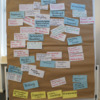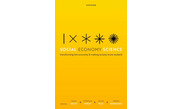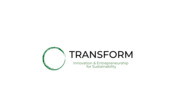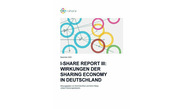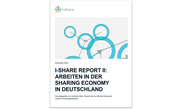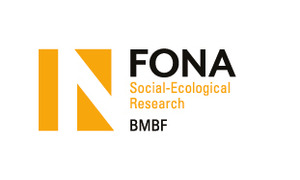Which opportunities do cooperative models and blockchain technology offer to the platform economy? What are other potential pathways toward a more sustainable platform economy?
Today, new digital platforms for sharing, swapping and other ways of collaborative consumption are widely associated with positive economic, ecological and social effects. At the same time, existing platforms like Airbnb and Uber are increasingly criticized in public debate for having negative effects on people, local economies and our planet. As a counter model, new decentral models combining alternative organizational forms (such as platform cooperatives) and new technologies (such as Blockchain technology) are discussed and tested. These and other alternative models promise to better reach social-ecological goals and offer potential to transform the sharing and platform economy.
News
|
Dominika Wruk co-edited a pioneering new book that provides the first comprehensive analysis of why and how social economy organisations drive systemic change, foster resilience and create superior value for society. Based on extensive empirical research, with a strong practical and policy component, the book draws on organizational theory and transition studies to provide a systematic perspective on complex multi-stakeholder forms of action. It discusses the social economy's role in promoting innovation for impact, as well as its role as an agent of societal change and as a partner to businesses, governments, and citizens. | ||
|
The course MAN 639 TRANSFORM - Innovation & Entrepreneurship for Sustainability is a collaborative course on innovation and (social) entrepreneurship for sustainable development. It was offered by a team of lecturers across the Universities of Heidelberg, Warsaw, Sorbonne, Copenhagen, and Mannheim. The course introduced the concepts of open and frugal innovation, strategic thinking for social problem solving, scaling sustainable solutions, and measuring societal impact. TRANSFORM effered students a unique opportunity for intercultural exchange, critical thinking and pro-active learning. | ||
|
Verschiedene Modelle der Sharing Economy versprechen, in unterschiedlicher Form zu Nachhaltigkeitszielen beizutragen. Leider fehlte bisher die Datengrundlage, um beurteilen zu können, welche Geschäftsmodelle und Organisationsformen welche spezifischen ökonomischen, sozialen und ökologischen Wirkungen in Deutschland haben. Im Rahmen von i-share wurde ein Ansatz entwickelt und umgesetzt, um diese Forschungslücke zu schließen. Im i-share Report III werden Ergebnisse der Forschungsarbeiten vorgestellt. Herausgegeben wird der Report von Dominika Wruk und Achim Oberg aus dem i-share Forschungsnetzwerk. | ||
|
In der Sharing Economy arbeiten verschiedene Personen auf ganz unterschiedliche Art und Weise: Bezahlte MitarbeiterInnen verbringen ihren Arbeitstag in Sharing-Economy-Organisationen, Ehrenamtliche arbeiten in ihrer Freizeit freiwillig mit, AnbieterInnen stellen ihre Arbeitskraft oder verschiedene Produkte über Sharing-Plattformen bereit, Freelancer nutzen Coworking Spaces, um ihrer Arbeit nachzugehen. Diese verschiedenen Personengruppen und ihre Arbeit in der Sharing Economy wurden bei i-share untersucht. Die Merkmale, Herausforderungen und Potenziale des Arbeitens in der Sharing Economy wurden in qualitativen und quantitative Studien untersucht. Ergebnisse dieser Forschung werden im vorliegenden Report beschrieben. Herausgegeben wird der Report von Johanna Mair, Daniel Veit und Michael Woywode aus dem i-share Forschungsnetzwerk. | ||
Contact platforms2share
 | Prof. Dr. Dominika Wruk Institute for SME Research and Entrepreneurship (ifm)
| ||||||
|
| |||||||

